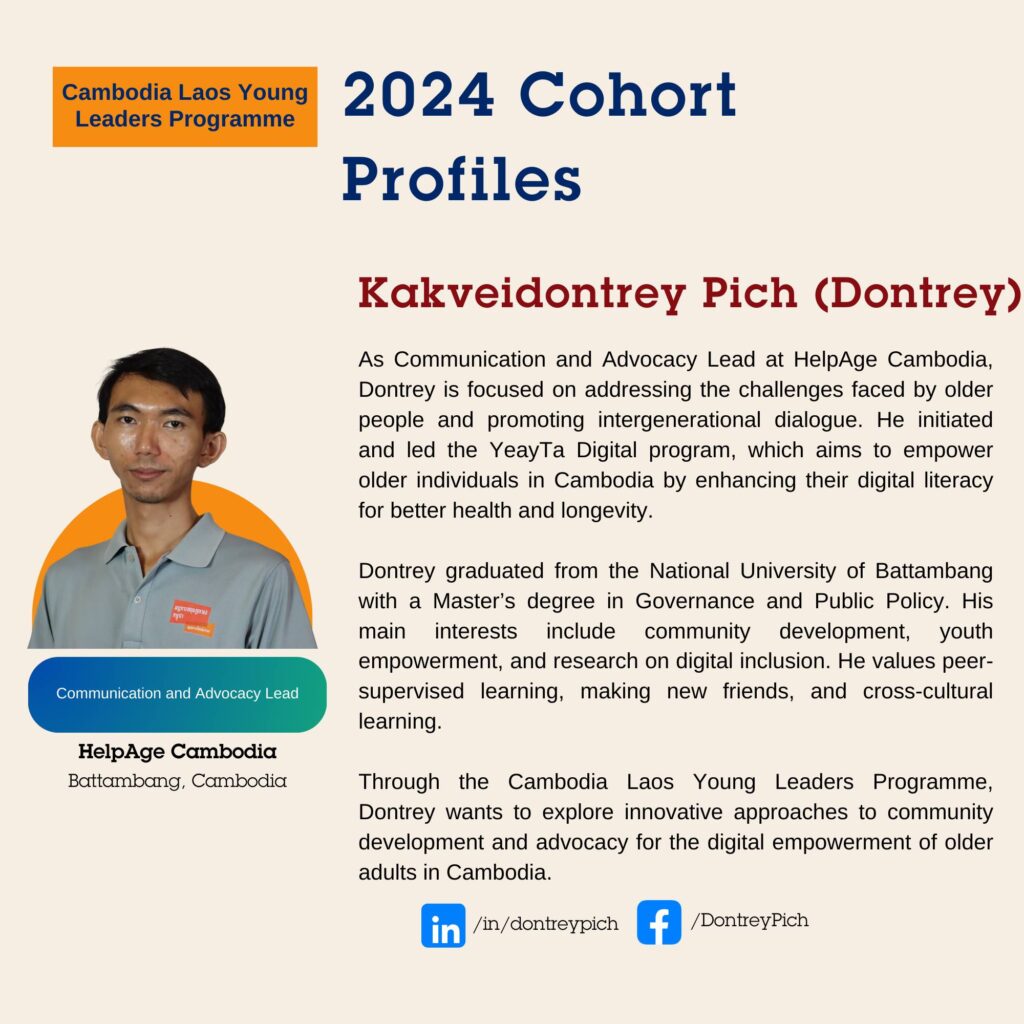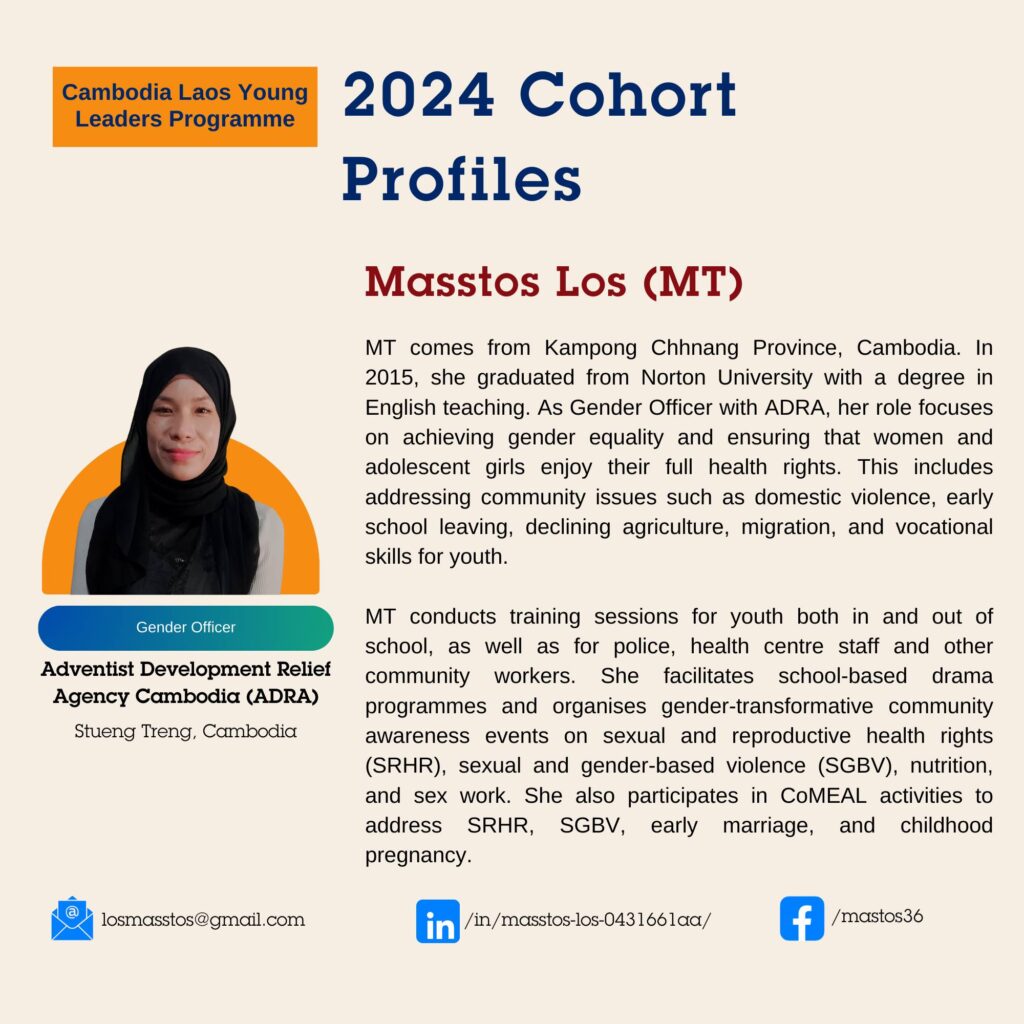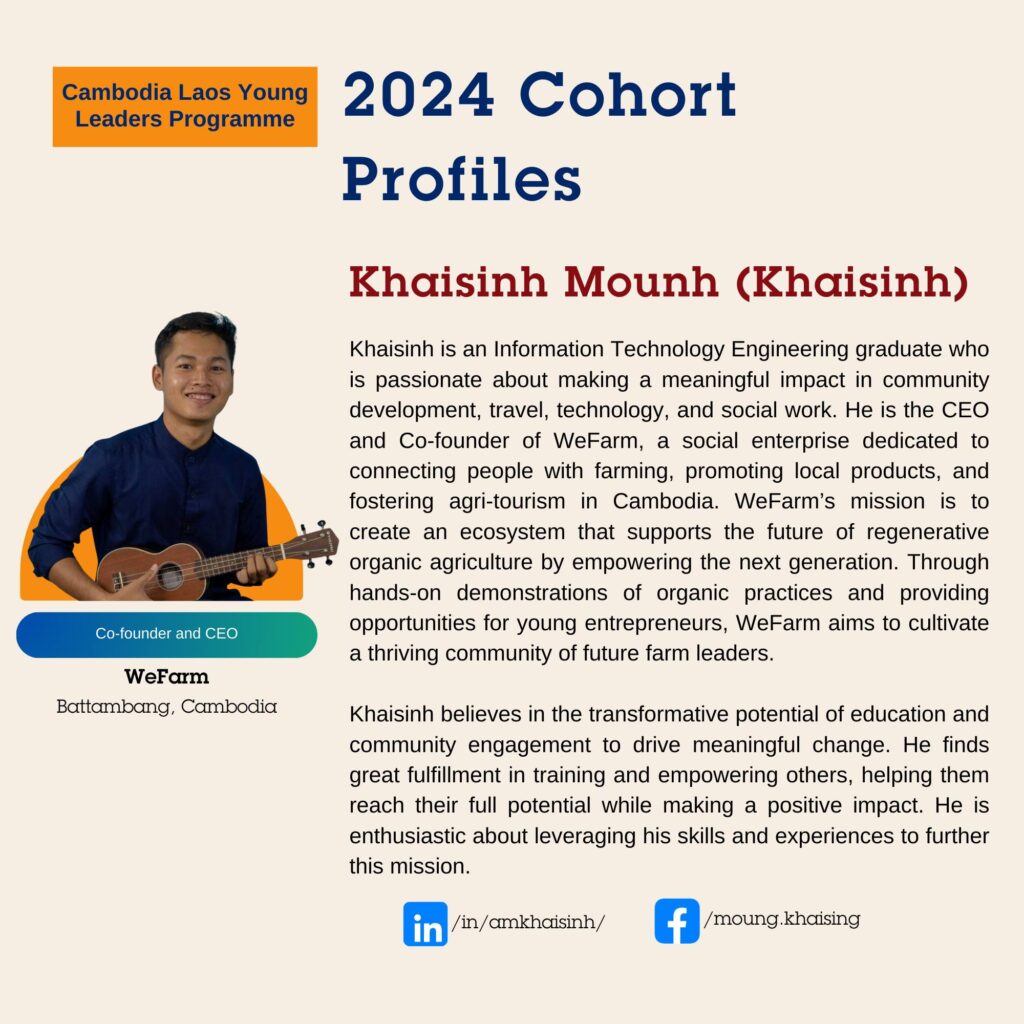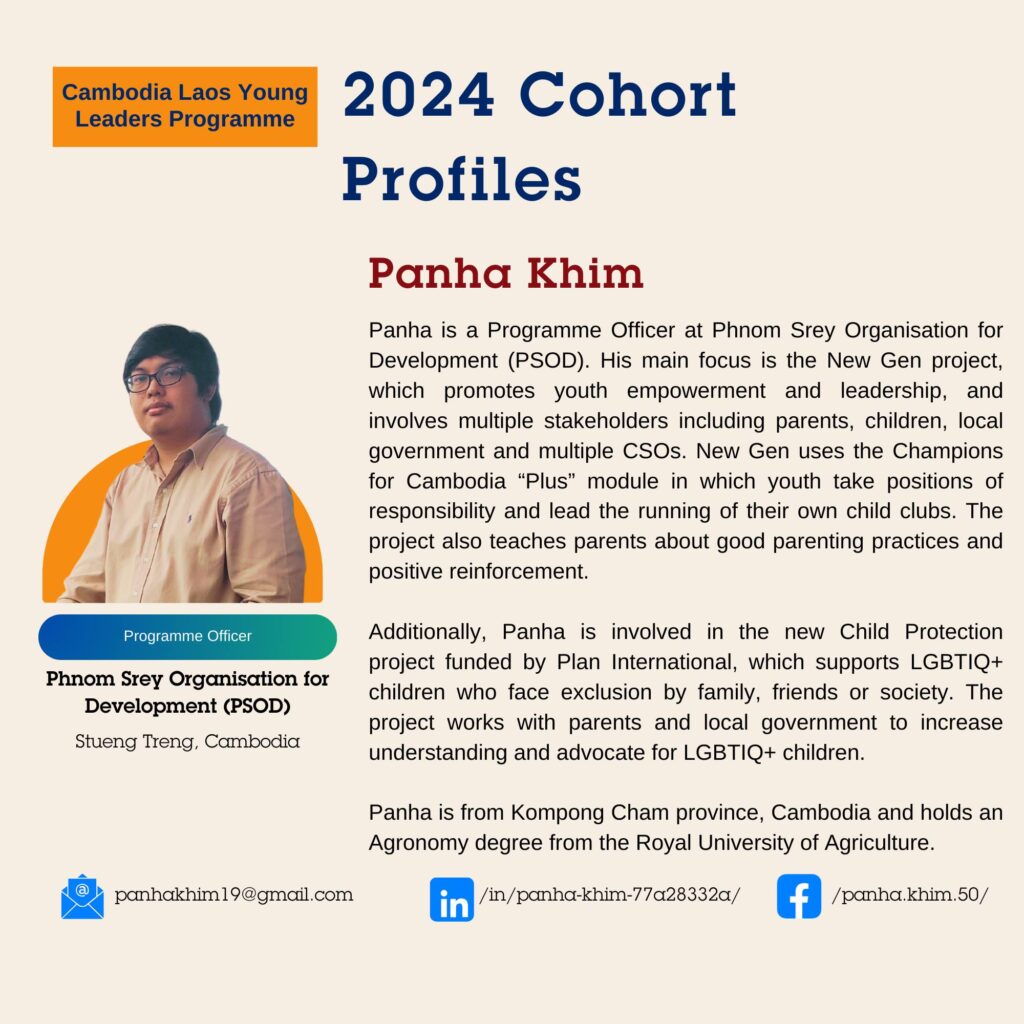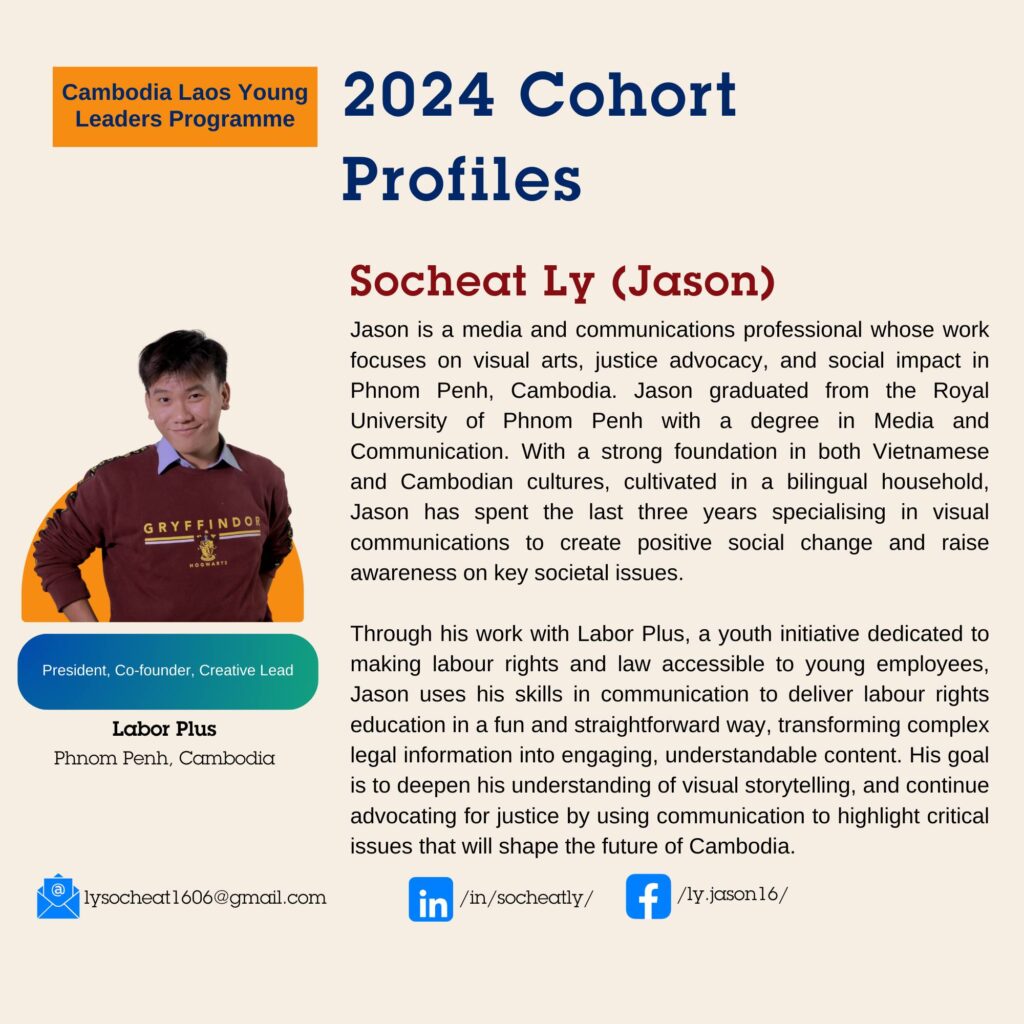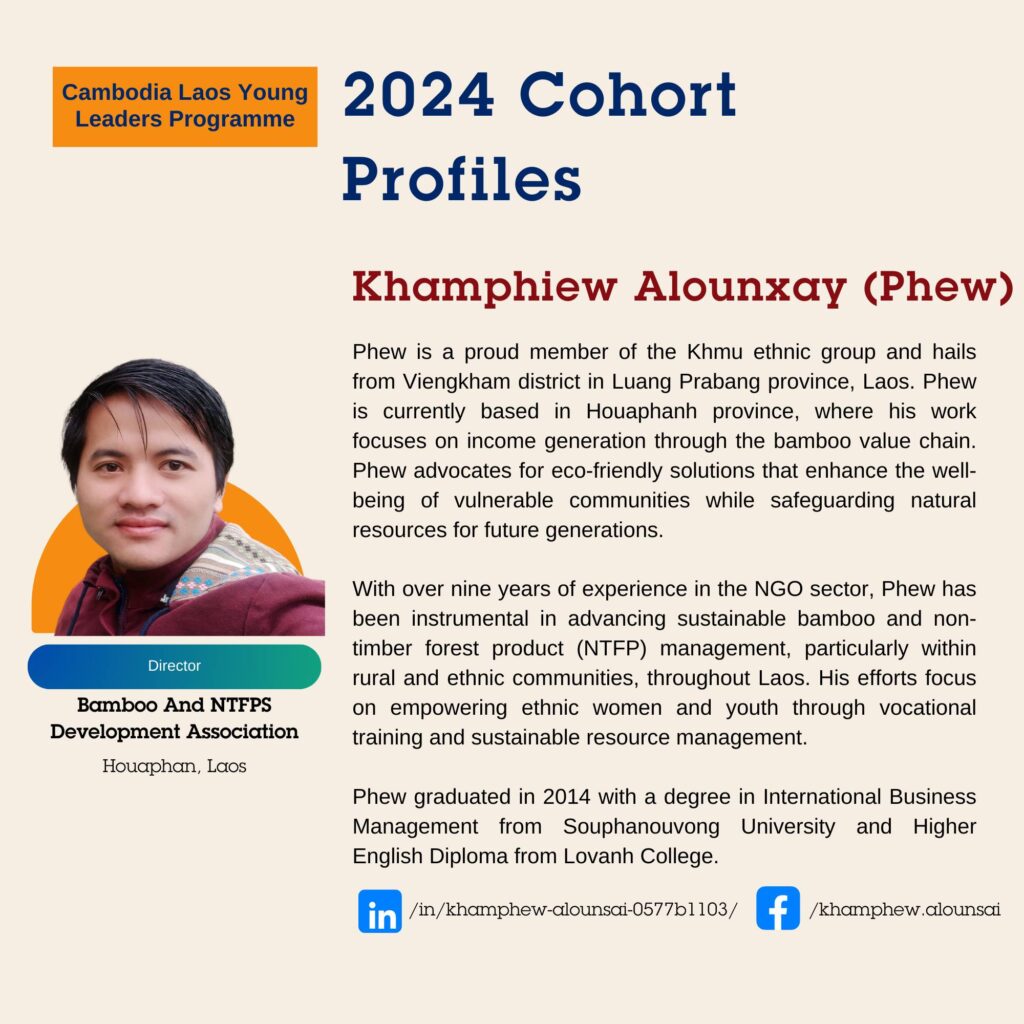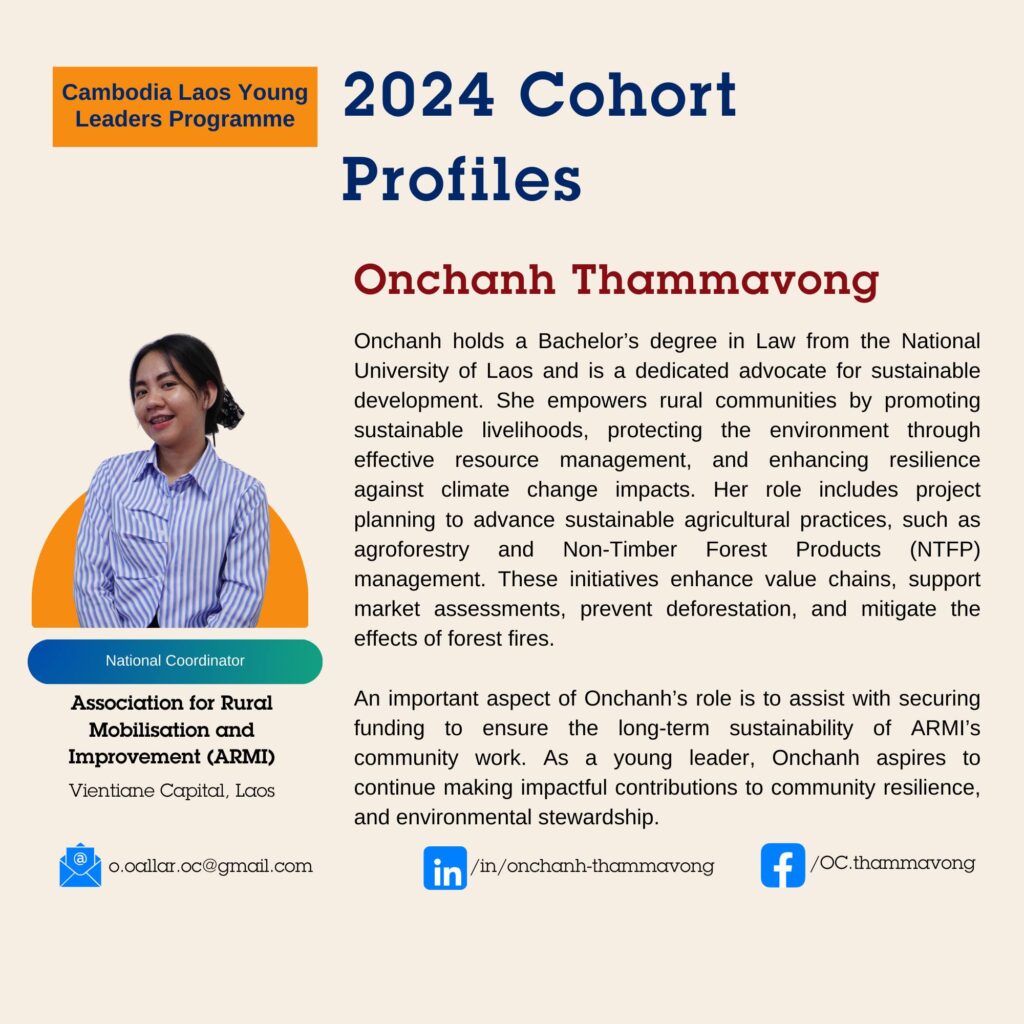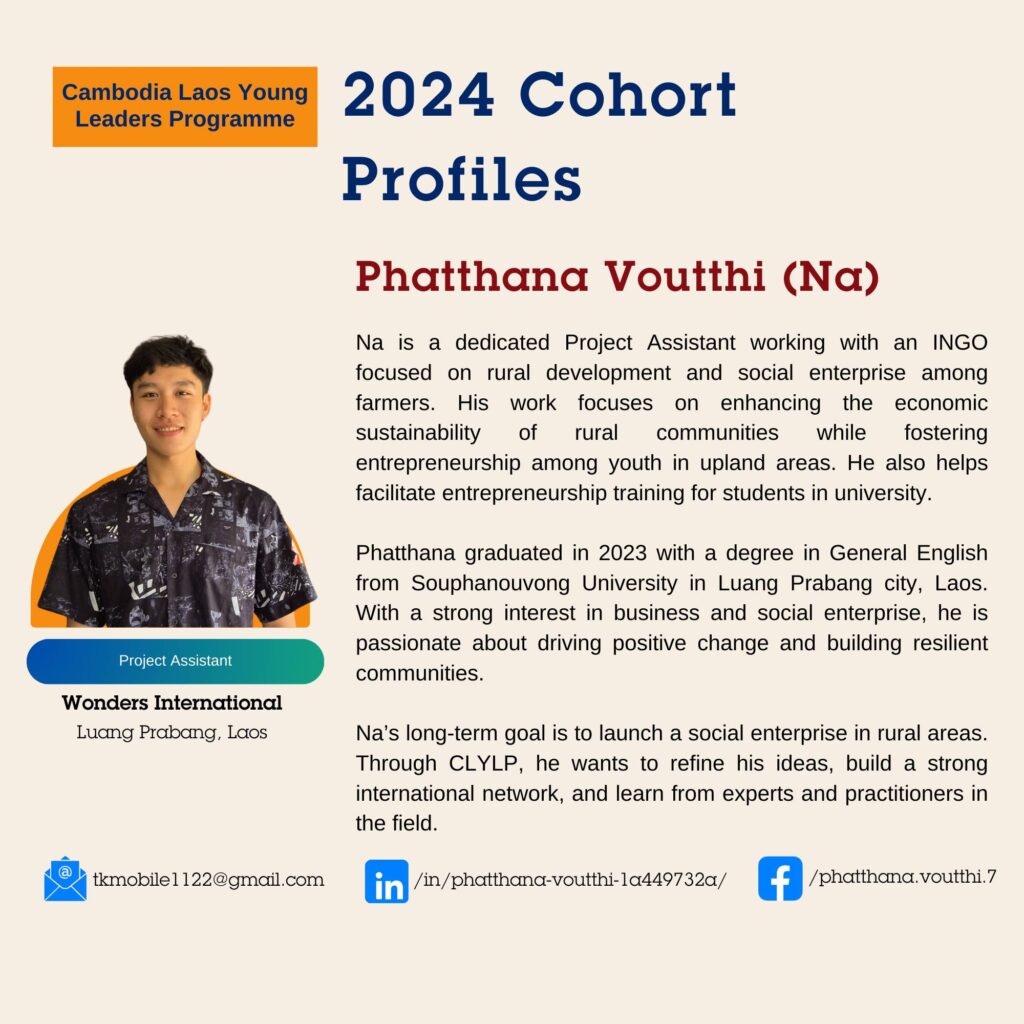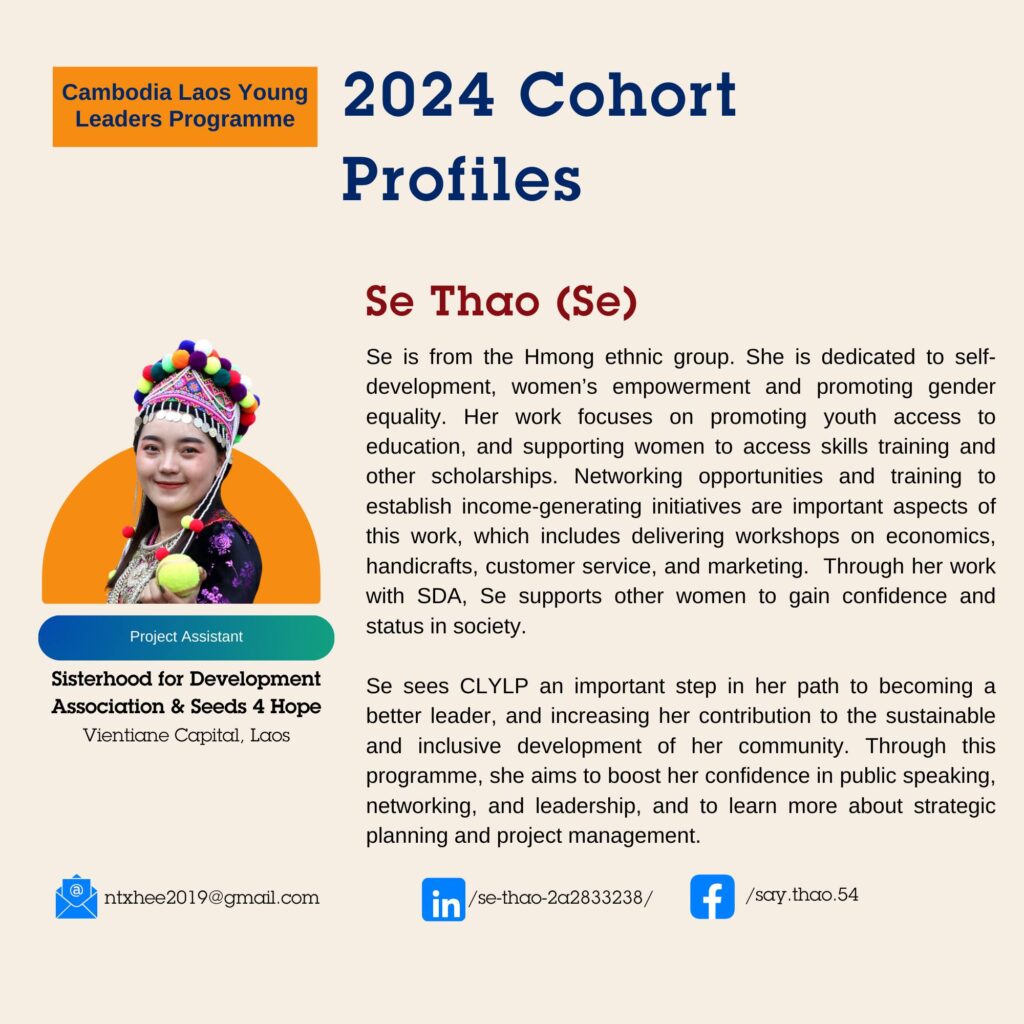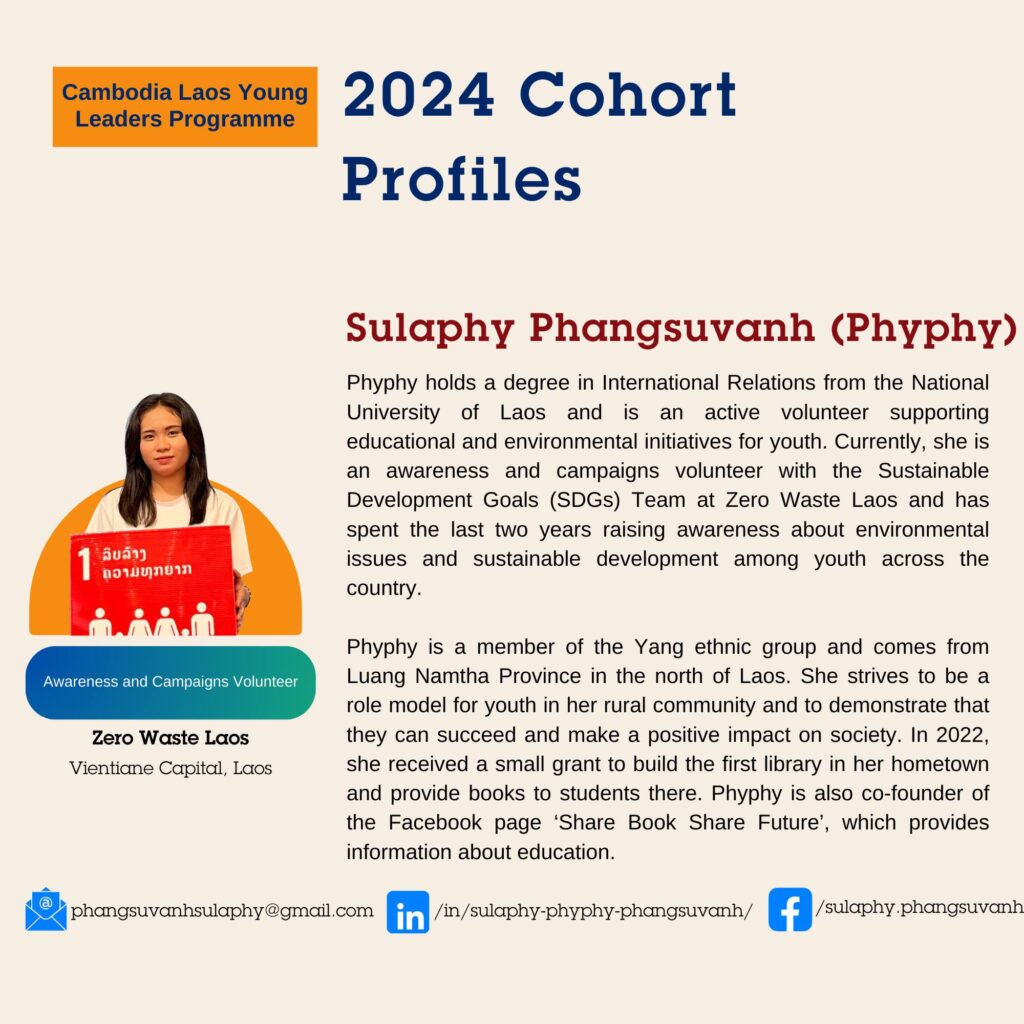CLYLP is a capacity building programme for emerging young civil society leaders, managed by UnionAID in collaboration with Khmer Farmer Products (KFP) in Cambodia, the Participatory Development Knowledge Agency (PAKA) in the Lao PDR and Auckland University of Technology (AUT). The programme enables participants from Cambodia and Laos to further develop their knowledge, skills and confidence so they can enhance their contribution to the sustainable development of their community, country and the wider Southeast Asia region.
CLYLP offers young leaders the opportunity to explore new ideas and approaches to sustainable development both in their own country and Aotearoa New Zealand, inspiring them to think creatively about the challenges in their own communities. Participants follow a group programme and work together on an inclusive, cross-ethnic basis. Each young leader will explore a specific development challenge affecting their community, develop and refine a research question on this topic, and prepare a proposal for a participatory action project to address the challenge.

The Cambodia Laos Young Leaders Programme (CLYLP) is designed to build the capacity of emerging young civil society leaders from all provinces in Cambodia and Laos. It is managed by UnionAID in collaboration with KFP and PAKA, with support from the New Zealand Ministry of Foreign Affairs and Trade.


Programme Duration
The Sustainable Development Course (SDC) was delivered in two parts.
online course of approximately 150 hours delivered while participants are in their home country (Cambodia and Laos), commencing in August.
- Online learning is complemented by a two-week, in-person residential workshop to be held in Cambodia and Laos during SDC Part 1 for participants to meet their peers and teaching team, and to learn intensively.
- SDC Part 2 is a full-time, in-person course of 12 weeks which takes place in Aotearoa New Zealand, commencing in March 2025.

What Benefits the Young Leaders get from the CLYLP 2024
The young leader participants are able to:
- explore the principles and practice of sustainable development in their home country and Aotearoa New Zealand
- to apply systems thinking to understand complex development challenges
- to develop skills in research and design thinking, and apply these to gain a deeper understanding of a specific development challenge
- to understand how to achieve development goals in different ways, with a particular focus on participatory approaches
- to apply learning on cross-cutting issues including human rights, gender and social inclusion, and environmental impact
- to build the skills required to develop and manage a project, including proposal writing, project management and MERLA (monitoring, evaluation, research, learning and adaptation)
- to improve their proficiency in English for professional and academic purposes.
- The young leader participants are exposed to a range of New Zealand institutions, policies and practices that are relevant to sustainable development, such as human rights, democratic processes, and community development, through classroom learning and field trips
- The young leader participants are able to visits to governmental and civil society organizations, such as community development organizations, the Human Rights Commission and Parliament
- Māori approaches to development, introduction to Te Tiriti o Waitangi – the Treaty of Waitangi and the opportunity to stay on a marae (traditional Māori meeting ground)
- The young leader participants get leadership skills workshops, such as organizational management and advocacy skills
- The young leader participants bare able to get a schedule of visits with organizations addressing similar issues to participants’ development challenges, either individually or in small groups


